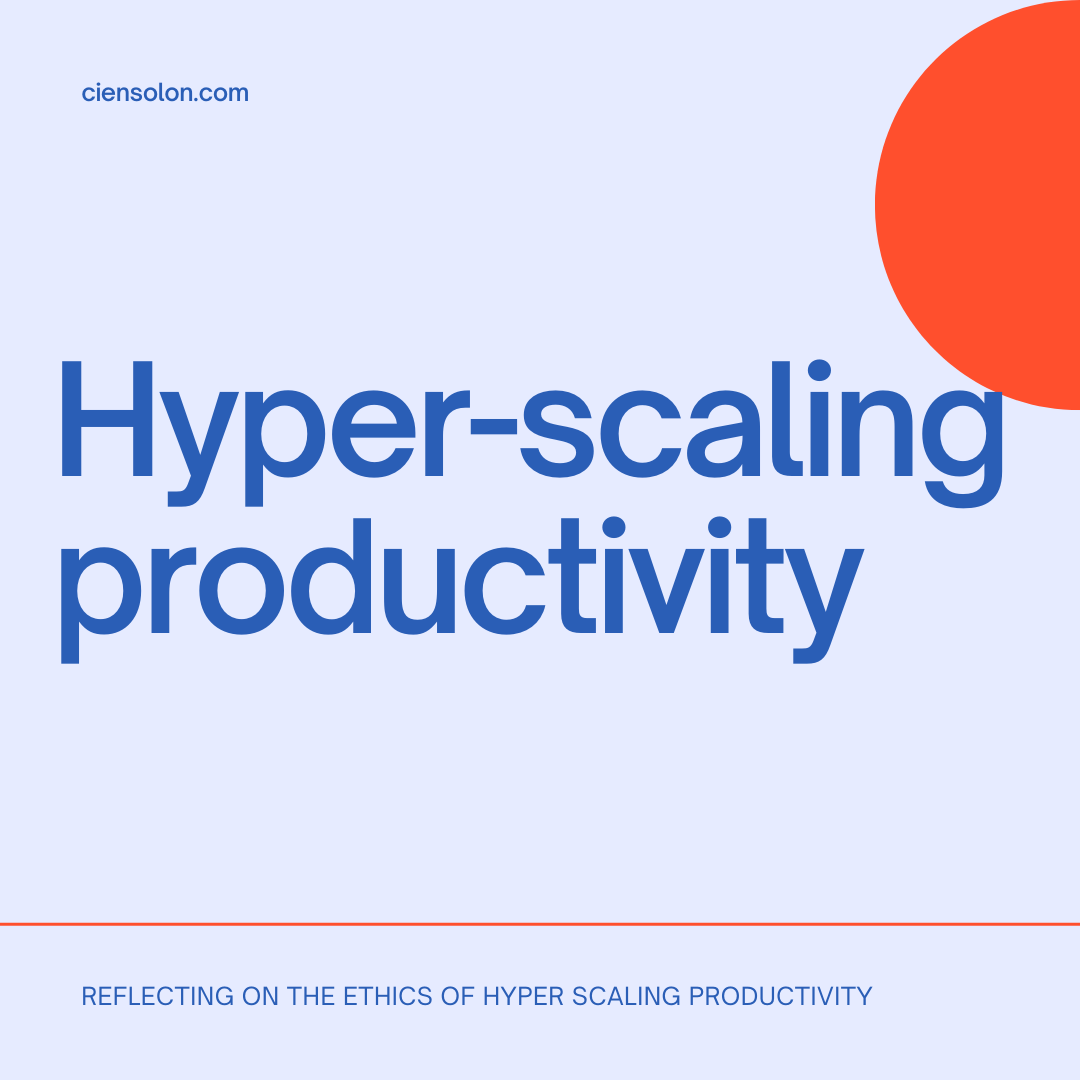The Ethics of Hyper Scaling Productivity
Immersing in the world of AI has been nothing short of transformative for me. The upside is hard to ignore…my productivity has shot up fourfold, thanks to AI tools that I have built for myself or that are available in the market. These tools have become my workhorses that handle a broad spectrum of tasks, from data analytics and research to content creation.
But the real game-changer has been freeing up my cognitive resources for tasks that require a deeper level of human ingenuity and strategic thinking. This liberation has a ripple effect, extending into other facets like reducing errors and enabling scalability.
Now, consider this scalability in light of what Notion and Canva have accomplished so far. They've redefined the definition of productivity. This operational agility is no accident; it’s the result of integrating AI tools that are designed to learn and adapt. The beauty of this adaptability is that it allows for exponential speedy growth without the need for a linear increase in resources.
However, in a recent team discussion about whether or not to use ChatGPT-generated content in our content, we found ourselves wrestling with a tricky question: are we sacrificing authenticity for efficiency? We noticed that some of the ChatGPT-generated content lacked the human touch, sounding a bit too robotic for our liking.
This raises a significant point: as we stretch the limits of AI's capabilities, we must remain sharp-eyed. Striking the right balance between efficiency and authentic customer engagement is a necessity I believe is crucial to gaining and maintaining our users’ trust.
Moreover, when it comes to the job market, the impact of automation is more nuanced than it may first appear. As we increasingly lean into automated workflows, the nature of work is undeniably shifting. Job roles are changing and some are disappearing altogether. For instance, data entry or basic customer query handling can now be effortlessly managed by AI. While this evolution might streamline operations and drive efficiency, it brings us face-to-face with the question of job displacement.
Yet, it's essential to remember that automation doesn't render the human element obsolete but rather, it repositions its importance. Take brands that stand out for example. Even with AI generated content, the brand voice and identity still stand out. Even in a world of automation, uniqueness, quality and value still stands out. These are the attributes that AI, despite its vast capabilities, cannot fully replicate… it can enhance it, sure, but it can’t replace it… yet!
It's crucial that we don't lose sight of our authenticity and unique voice. Hyperscaling with AI does not mean letting go of our “humanness.”

